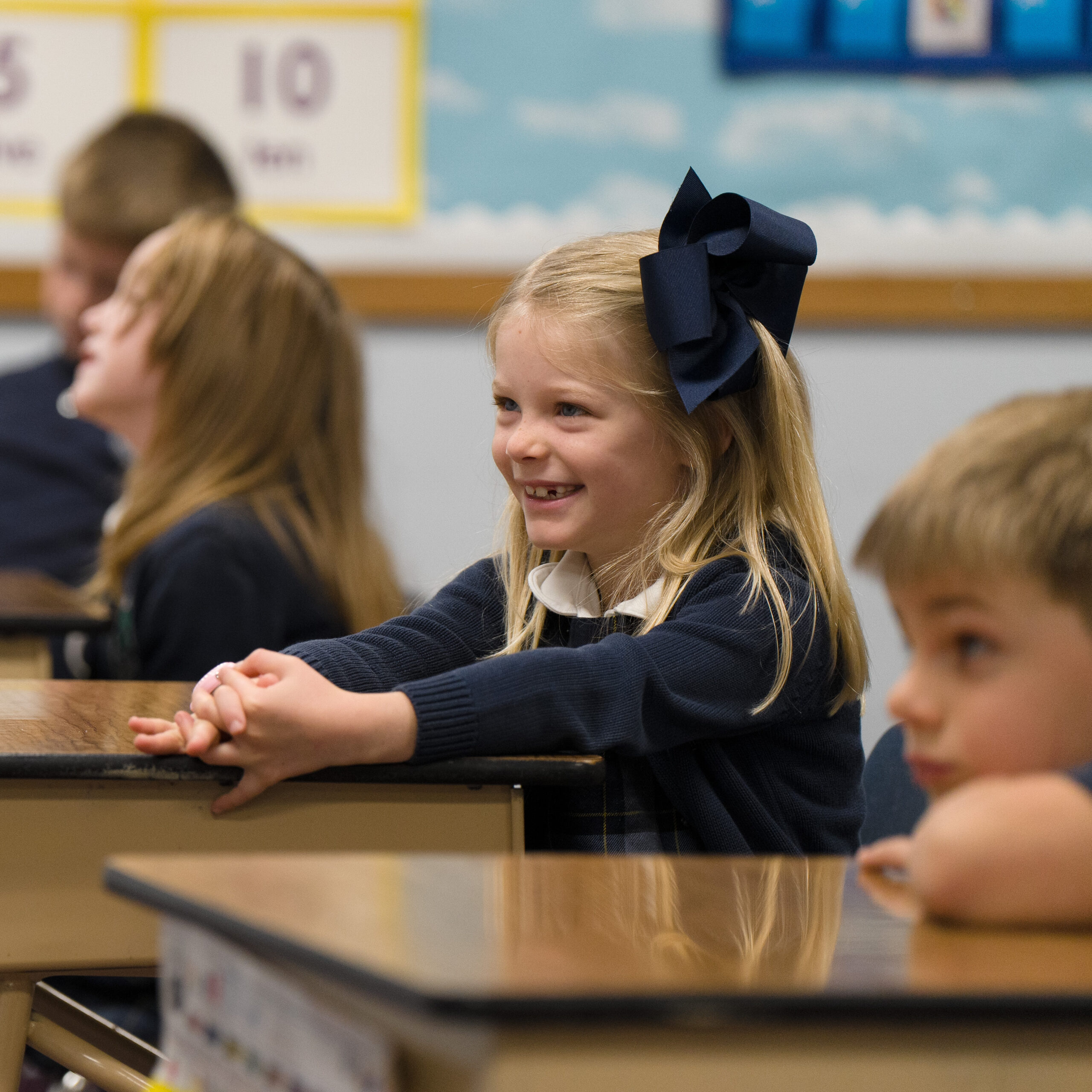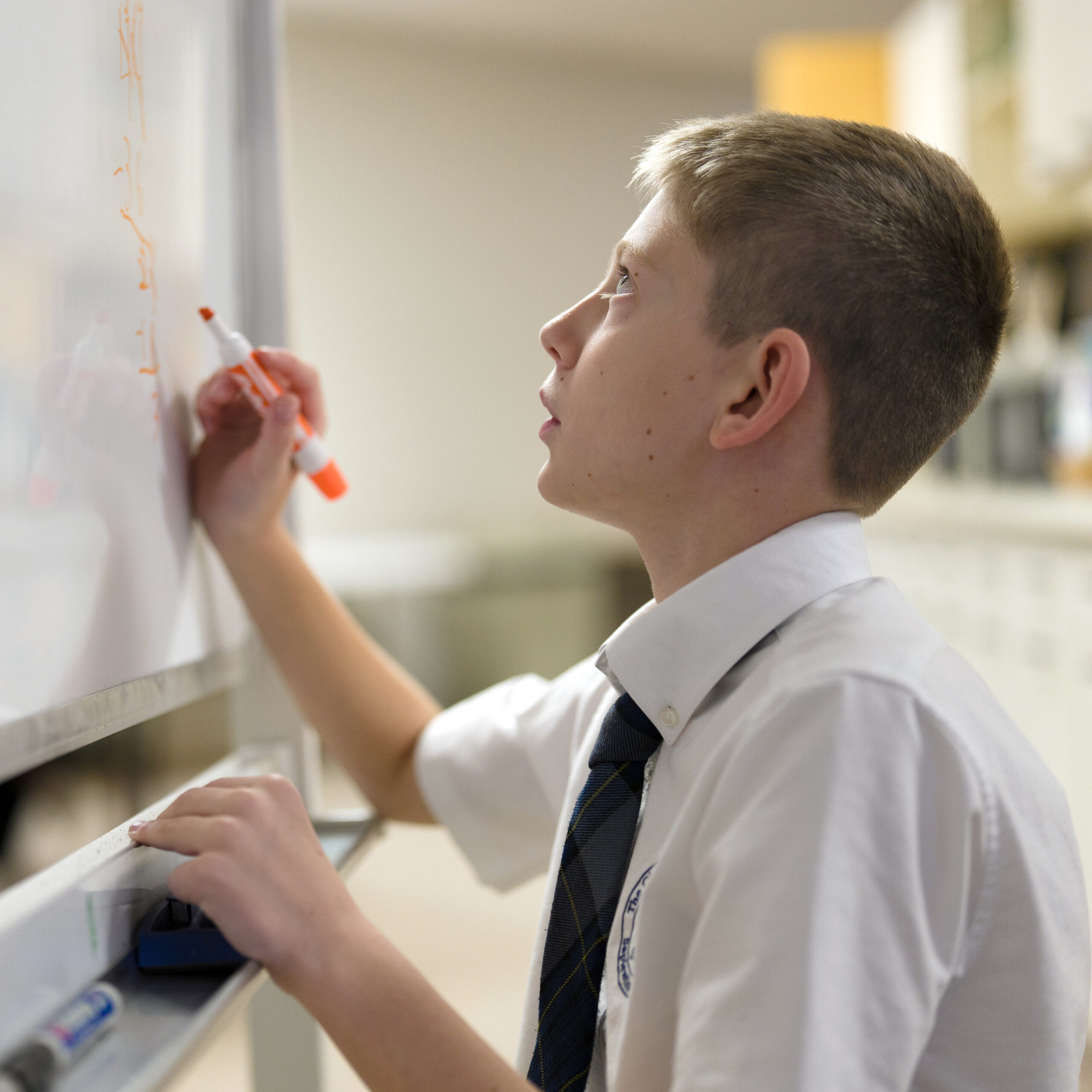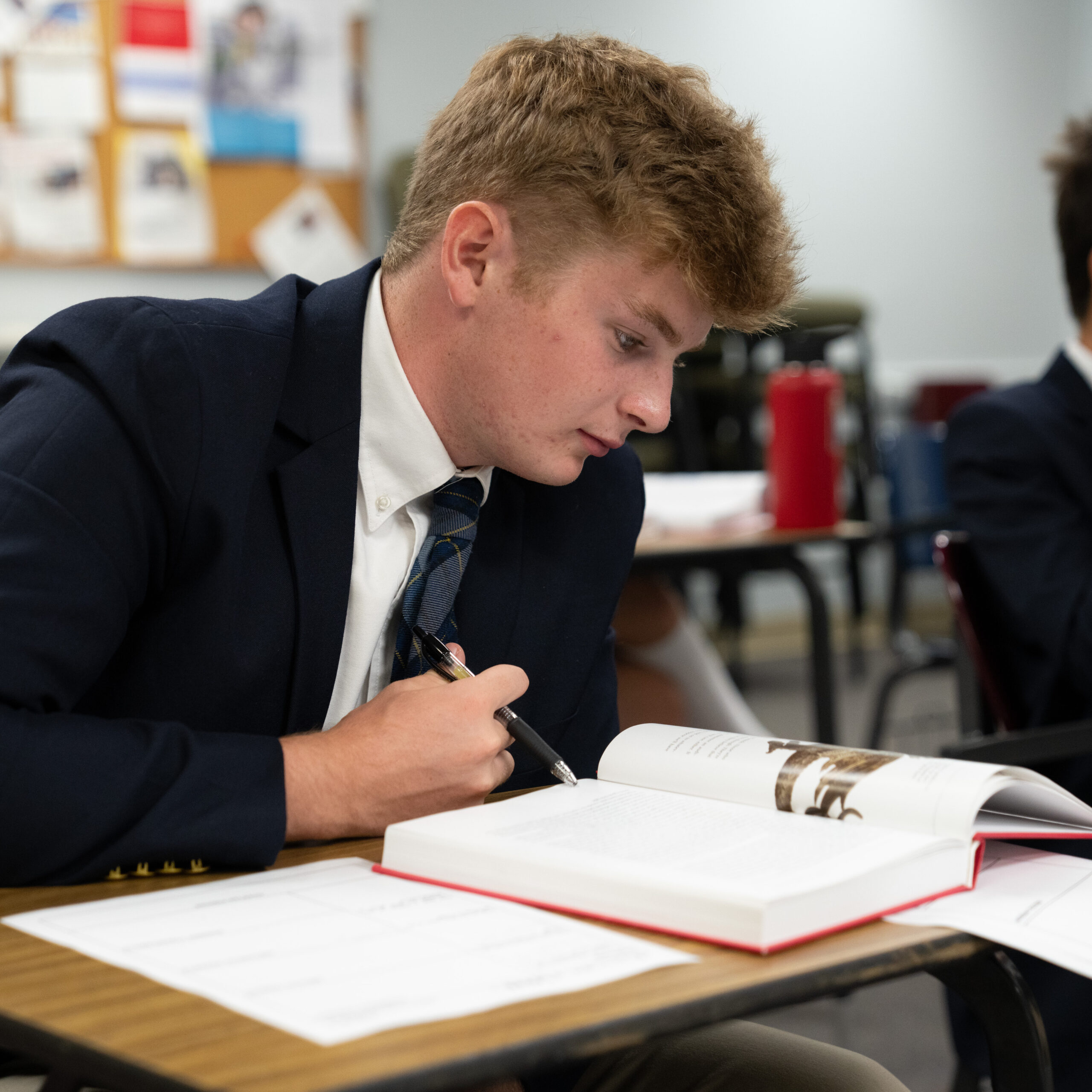Classical Education
Teaching them how to learn, not what to learn.
Teaching in the Trivium
The Trivium is divided into 3 stages: Grammar, Logic, and Rhetoric.
Grammar
The grammar stage focuses on laying the building blocks, or the “grammar” of each subject area.
Logic
The logic stage builds on the facts learned in grammar school and students begin to analyze the order of relationships.
Rhetoric
In the rhetoric stage, students express their thoughts and ideas in oral and written form.
Grammar School
Logic School
Rhetoric School
A deeper look at classical education
The Classical Academy Trivium Application Chart
Grades PreK-2nd, Approx. ages 4-8
Student Characteristics
1. Obviously excited about learning
2. Enjoys games, stories, songs, projects
3. Short attention span
4. Wants to touch, taste, feel, smell, see
5. Imaginative, creative
Teaching Methods
1. Guide discovering
2. Explore, find things
3. Use lots of tactile items to illustrate point
4. Sing, play games, chant, recite, color, draw, paint, build
5. Use body movements
6. Short, creative projects
7. Show and Tell, drama, hear/read/tell stories
8. Field trips
(Poll-Parrot)
Grades 3-6, Approx. ages 8-11
Student Characteristics
1. Excited about new, interesting facts
2. Likes to explain, figure out, talk
3. Wants to relate own experiences to topic, or just to tell a story
4. Likes collections, organizing items
5. Likes chants, clever, repetitious word sounds
6. Easily memorizes
7. Can assimilate another language well
Teaching Methods
1. Lots of hands-on work, projects
2. Field trips, drama
3. Make collections, displays, models
4. Integrate subjects through above means
5. Teach and assign research project
6. Recitations, memorizations
7. Drills, games
8. Oral/written presentations
(Pert)
Grades 7-8, Approx. ages 12-13
Student Characteristics
1. Still excitable, but needs challenges
2. Judges, critiques, debates, critical
3. Likes to organize items, others
4. Shows off knowledge
5. Wants to know “behind the scenes” facts
6. Curious about Why? for most things
7. Thinks, acts as though more knowledgeable than adults
Teaching Methods
1. Time lines, charts, maps (visual materials)
2. Debates, persuasive reports
3. Drama, reenactments, role-playing
4. Evaluate, critique (with guidelines)
5. Formal logic
6. Research projects
7. Oral/written presentations
8. Guest speakers, trips
(Poetic)
Grades 9-12, Approx. ages 14-18
Student Characteristics
1. Concerned with present events, especially in own life
2. Interested in justice, fairness
3. Moving toward special interests, topics
4. Can take on responsibility, independent work
5. Can do synthesis
6. Desires to express feelings, own ideas
7. Generally idealistic
Teaching Methods
1. Drama, oral presentations
2. Guide research in major areas with goalof synthesis of ideas
3. Many papers, speeches, debates
4. Give responsibilities, e.g. working with younger students, organize activities
5. In-depth field trips, even overnight
6. World view discussion and written papers



